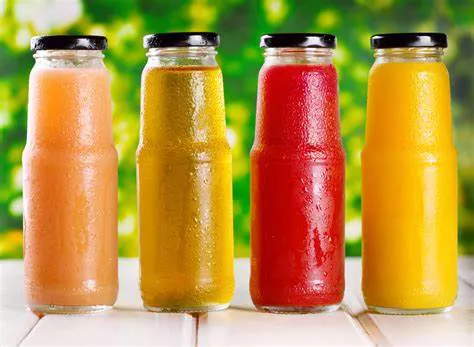High blood pressure, or hypertension, is a common health condition that affects millions of people worldwide. It is often referred to as the “silent killer” because it can lead to serious health complications such as heart disease, stroke, and kidney problems if left uncontrolled. While lifestyle changes such as a healthy diet, regular exercise, and medication prescribed by a healthcare professional are key in managing high blood pressure, certain juices have gained attention for their potential benefits in this regard. In this article, we will explore which juice is best for treating high blood pressure and delve into the scientific evidence supporting their use.
Understanding High Blood Pressure
Before diving into the specific juices beneficial for high blood pressure, let’s briefly understand what high blood pressure is and how it can impact health. Blood pressure is the force of blood pushing against the walls of the arteries as the heart pumps blood. It is measured in millimeters of mercury (mm Hg) and consists of two numbers: systolic pressure (the top number) and diastolic pressure (the bottom number). Normal blood pressure is typically around 120/80 mm Hg.
High blood pressure occurs when the force of blood against the artery walls is consistently too high. This can damage the arteries over time and lead to serious health issues. Lifestyle factors such as diet, physical activity level, stress, and genetics can influence blood pressure levels.
See Also: Which Seeds Are Good for High Blood Pressure
The Role of Diet in Managing High Blood Pressure
Diet plays a crucial role in managing high blood pressure. A diet rich in fruits, vegetables, whole grains, lean proteins, and low-fat dairy products while limiting sodium, saturated fats, and cholesterol is recommended for individuals with hypertension. Additionally, certain nutrients such as potassium, magnesium, and antioxidants found in fruits and vegetables have been associated with lower blood pressure levels.
Which Juice Is Best for High Blood Pressure?
Beetroot Juice: Beetroot juice has gained attention for its potential to lower blood pressure. It is rich in nitrates, which are converted into nitric oxide in the body. Nitric oxide helps relax and dilate blood vessels, improving blood flow and lowering blood pressure. Several studies have shown that beetroot juice consumption can lead to a significant reduction in systolic and diastolic blood pressure levels.
Pomegranate Juice: Pomegranates are packed with antioxidants, particularly polyphenols, which have been linked to cardiovascular health benefits. Drinking pomegranate juice has been shown to lower blood pressure, improve cholesterol levels, and reduce oxidative stress in the body. These effects may contribute to its potential in managing high blood pressure.
Celery Juice: Celery is a low-calorie vegetable rich in nutrients like potassium, magnesium, and antioxidants. Celery juice has been studied for its potential to lower blood pressure due to its vasodilatory and diuretic effects. It may help relax blood vessels and promote urine production, thus reducing blood pressure levels.
Carrot Juice: Carrots are a good source of potassium, which plays a role in regulating blood pressure. Drinking carrot juice may contribute to overall heart health and help maintain healthy blood pressure levels.
Orange Juice: Oranges are rich in vitamin C, potassium, and antioxidants. While orange juice is often associated with its vitamin C content, it also provides potassium, which is beneficial for blood pressure management. Opt for freshly squeezed orange juice without added sugars for maximum benefits.
Tips for Incorporating Juices Into A Healthy Diet
Choose freshly squeezed or 100% fruit/vegetable juices without added sugars or preservatives.
Drink juices in moderation as part of a balanced diet that includes a variety of fruits, vegetables, whole grains, and lean proteins.
Consider diluting juices with water or adding them to smoothies for a nutrient-packed beverage.
Monitor sodium intake and avoid juices with added salt.
Consult with a healthcare professional or registered dietitian before making significant dietary changes, especially if you have existing health conditions or are taking medications.
Conclusion
While juices can be a refreshing and nutritious addition to a healthy diet, they should not replace whole fruits and vegetables. For individuals with high blood pressure, incorporating juices like beetroot, pomegranate, celery, carrot, and orange juice, along with other lifestyle modifications, may contribute to better blood pressure management.
However, it’s essential to focus on overall dietary patterns and consult healthcare professionals for personalized recommendations and monitoring of blood pressure levels.

